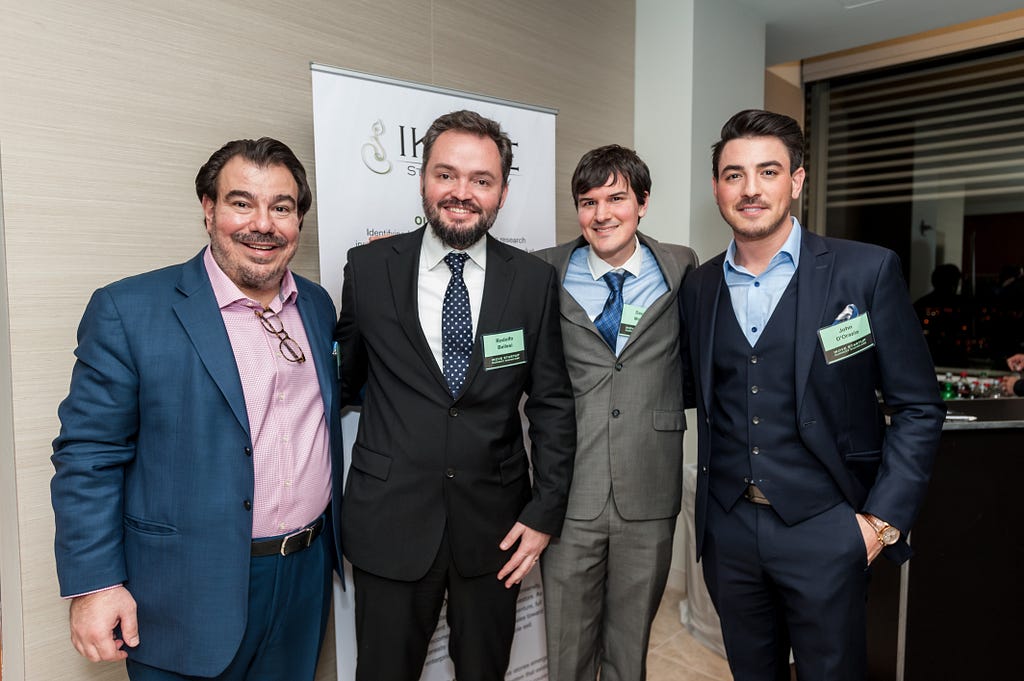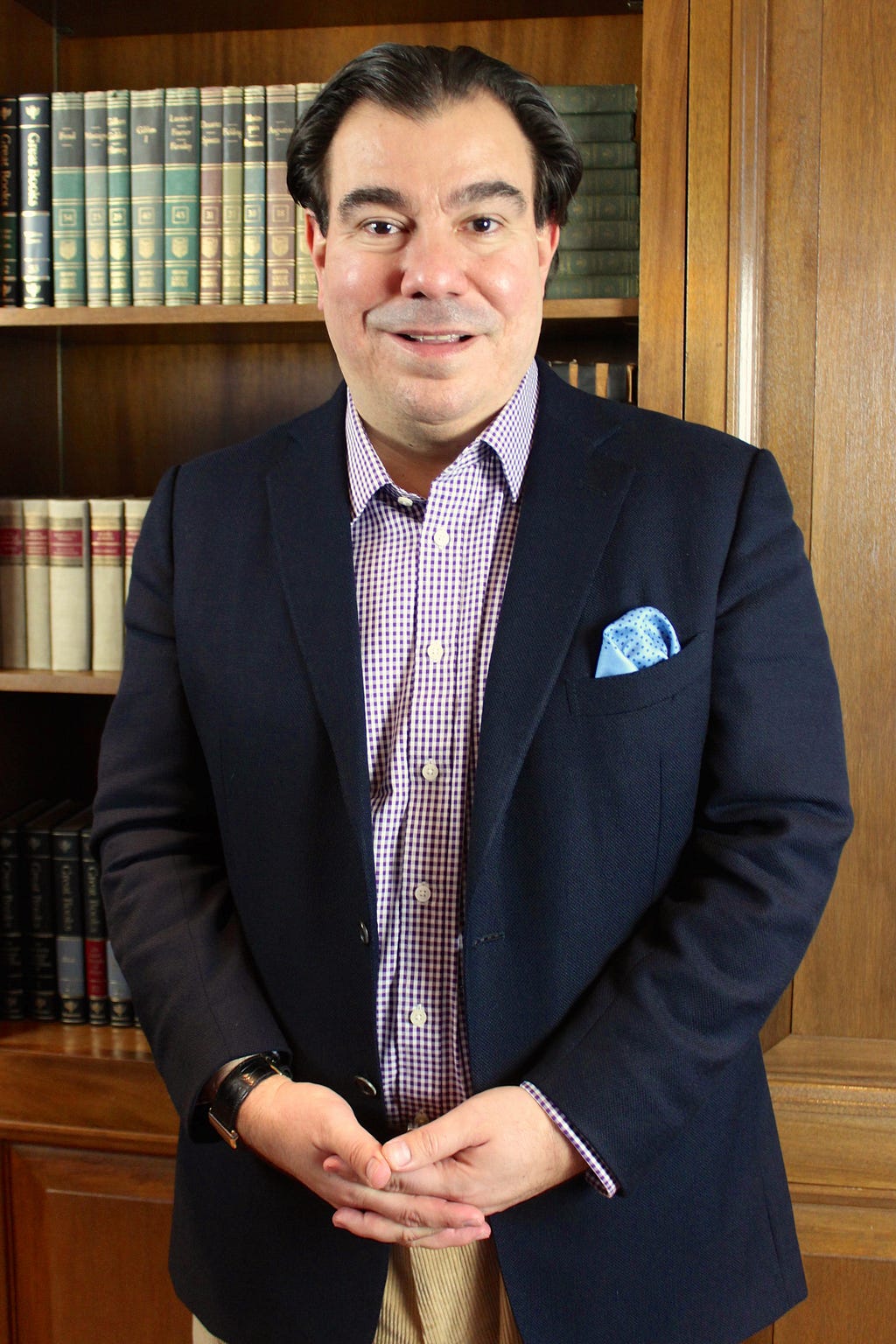“In the US, $70 billion is invested in basic R&D, but less than one percent is invested in the commercialization of these technologies; We have to change this” With Flavio Lobato

I believe the greatest source of innovation is locked up at leading research universities. In the US alone, $70 billion is invested in basic R&D via universities and federal grants, but less than one percent is invested in the commercialization of these technologies. There are life-changing discoveries that will never be utilized because of the lack of incentives to commercialize technologies. This isn’t just a problem in the US, it is happening globally. At Ikove, we are trying to build a bridge between the lab and the market. We identify, vet and launch deep tech companies that deserve to be shared with humanity.
I had the pleasure of interviewing Flavio Lobato, Principal and Cofounder of Ikove Capital Partners. Previously, he was an Executive Director at Liongate Capital Management, a $7 billion alternative investment manager based in London and New York. He was also a founder and CIO of Swiss Capital Asset Management in Lugano, managing over $1.5 billion in hedge fund investments for institutional clients. Prior to that, he was a VP at Goldman Sachs & Co. and a Director at Credit Suisse First Boston. He is a student advisor to the Harvard Innovation Lab (I-Lab) and Co-Head of Fintech for Harvard Angels of NYC.
Thank you so much for doing this with us! Can you tell us a story about what brought you to this specific career path?
I was born in Brazil and moved to the US when I was in high school. When I arrived, I spoke mediocre English and had to learn most of the language as I lived here. During this time, Brazil was a closed-off country and in the process of a government reform, as it was previously a military dictatorship. Growing up, I lived through multiple financial and debt crises, experiencing 2,000 percent inflation. During my time in college, Brazil had four or five different currencies. Since I was around this environment, coming to the US was truly the land of opportunity to me. Living through this volatility also gave me a very good perspective on business and life.
I have always been an explorer and high-risk taker. I started my first company while I was in college and raised $1 million From there forward, I knew my career was going to be connected with entrepreneurship, finance and technology. After graduating from Harvard Business School, I spent over 20 years investing in both liquid and illiquid space. I had the opportunity to work at Goldman Sachs when it was still a private partnership. It provided me with tools that I carry to this day.
Are you working on any new or exciting projects now?
Ikove Capital focuses on identifying deep tech that comes out of leading research institutions. We have four verticals: STEM, MedTech, AgriTech and FinTech.
One key project I am working on is Circular Wave Drive (CWD), where I am the acting CEO. CWD’s technology was developed at The Ohio State University. The company is developing a line of speed reducers, which is a key component in industrial robotics. On average, speed reducers comprise over 40 percent of the costs of industrial robots. By creating a better and cheaper solution, CWD can disrupt a multibillion-dollar industry, dramatically reducing the cost of industrial robotics and lowering manufacturing costs worldwide. It isn’t very often that you can find a technology that can change an entire industry.
None of us are able to achieve success without some help along the way. Is there a particular person who you are grateful towards who helped get you to where you are? Can you share a story about that?
I am very grateful for my parents. They pushed me beyond my limits and taught me to dream big! I am also grateful for my wife, Sachenka. She is my rock and provides me the stability I need.
What do you think are the new untapped markets in China that may become the next “big thing”?
We see industrial robotics as a massive opportunity and that over 65 percent of the world installation base will be in China. CWD has the potential to disrupt a huge market.
What challenges does that new market face? How would you address it?
This market has not seen innovation is a very long time and it is due for a disruption. Speed reducers are not a new technology and the market is dominated by two large players. For CWD, it is crucial to gain the trust of robotic companies. Our focus is to align our interests with that of our clients by providing a solution that will have direct impact on their bottom line. Since the industry operates similarly to a monopoly, offering a new option will be a significant incentive for robotic manufacturers.
Can you share the top challenges of doing business in China and how you overcame them?
China is full of challenges and doing business there is not easy.
The first challenge is IP protection. While things have improved, it is still a very big issue. In addition, most of the local structures for foreign companies that to come to China require local Chinese control, which is difficult to give up. With that being said, China is one of the most capitalist countries in the world. They are moving fast to address a lot of issues.
The solution for us was to initially set up operations in Hong Kong before moving into the mainland. The Hong Kong government is open to businesses has a Western style of governance structures that facilitates the transition.
We keep hearing about the “Trade War”. What are your thoughts about it? Given the unknowns, how do you plan to pivot?
Due to the trade war, we had to change our strategy. We were going to place our initial offices in Shanghai, but ended up having to move to Hong Kong instead. The uncertainty of the situation makes it difficult to predict the direction and commit substantial resources to the area.

Can you please give us your favorite “Life Lesson Quote”? Can you share how that was relevant to you in your life?
My favorite life-lesson quote is “Access to success is through the mind.” This was the motto of my swim coach when I was growing up and he would instill this in the team before our grueling practices.
You are a person of great influence. If you could inspire a movement that would bring the most amount of good to the most amount of people, what would that be? You never know what your idea can trigger. 🙂
I believe the greatest source of innovation is locked up at leading research universities. In the US alone, $70 billion is invested in basic R&D via universities and federal grants, but less than one percent is invested in the commercialization of these technologies. There are life-changing discoveries that will never be utilized because of the lack of incentives to commercialize technologies. This isn’t just a problem in the US, it is happening globally. At Ikove, we are trying to build a bridge between the lab and the market. We identify, vet and launch deep tech companies that deserve to be shared with humanity.
“In the US, $70 billion is invested in basic R&D, but less than one percent is invested in the… was originally published in Authority Magazine on Medium, where people are continuing the conversation by highlighting and responding to this story.
